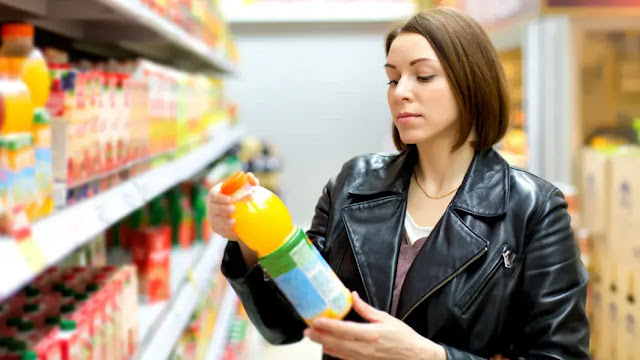"Vitamin", "Detox", "Digestion"... the latest investigation of the Repression of Fraud reveals that many food products such as teas and cereals can present on their packaging "health" claims that do not comply with the European regulation in order to influence consumers' purchase.
A claim is said to be "health-related" when it emphasizes a link between a nutrient or food and health. For example, phrases such as "calcium is necessary for normal bone structure". Products mentioning this kind of terms are nowadays legion in supermarkets, as consumers are more and more sensitive to the link between food and health. European regulations have strictly controlled these communications since 2007, establishing lists of health claims that can be used. But are the regulations in this field always well respected? No, as indicated by a report from the French Fraud Control Board (DGCCRF) published on June 21, 2021.
The rate of anomalies found amounts to 44%
The DGCCRF regularly monitors health claims on food labels, and the results of its latest investigation conducted in 2019 warn of numerous abuses in this area. The investigation targeted the products most likely to carry health claims: infusions, teas, chocolates, breakfast cereals, beehive products ... And it turns out that on more than 300 controlled establishments, the rate of anomalies found is 44%. However, "it should be ensured that these messages are founded, but also that their formulation does not imply a negative impact on the health of consumers, especially the most vulnerable," she notes.
Beware of prohibited therapeutic claims
The risk is that consumers "could mistakenly take the products that carry them as a substitute for therapeutic means". However, the organization specifies that there is a difference between the so-called "physical" establishments (shops, production sites...), which show a rate of anomaly of 38%, and the establishments selling their products on the Internet, whose rate is well of 69%. In total, five types of breaches were most commonly encountered, the first being the presence of therapeutic claims. Among the examples given: "to fight against anemia", "used during a cold", "used in the treatment of certain dermatoses".
The second observation concerns the presence of unauthorized health claims because they are not registered on the lists of authorized claims: "coconut facilitates digestion", "biotin helps maintain normal nails"...
In addition, some manufacturers do not exactly respect the wording of authorized claims, and thus change their original meaning. The most concrete example given concerns vitamin C: instead of the claim validated by the European authorities "vitamin C contributes to the normal functioning of the immune system", it is possible to read the more catchy but unregulated claim "vitamin C increases the immune system".
A phenomenon that is becoming more pronounced with COVID?
Finally, the last two deficiencies apply to so-called "general" claims that are not accompanied by an authorized claim (for example, the terms "Superfruit" and "Detox") and to nutritional claims that are not consistent with the composition of the product. For example, if the vitamin content in the product is too low to use the claim "source of vitamin". Given the high rate of anomalies, Repression des Fraudes says it will continue investigations in this area. "Even more precise targeting will be carried out to direct the controls towards the operators likely to present the most anomalies", concludes the organization.
Health context obliges, some false allegations can now also concern the COVID-19 as explained by Romain Roussel, director of cabinet at the DGCCRF, on the radio Europe 1. According to him, some professionals do not hesitate to surf on the health news to challenge buyers. "During the containment, we have seen flourish on the Internet a large number of fanciful claims in connection with Covid-19, such as: 'allows to fight against Covid-19' or 'allows to strengthen its immune defenses against Covid-19, "he notes. To help you find your way around, the DGCCRF has published on its website a sheet on health and nutritional claims that summarizes the regulatory framework applicable to these claims since 2007.


0 Comments